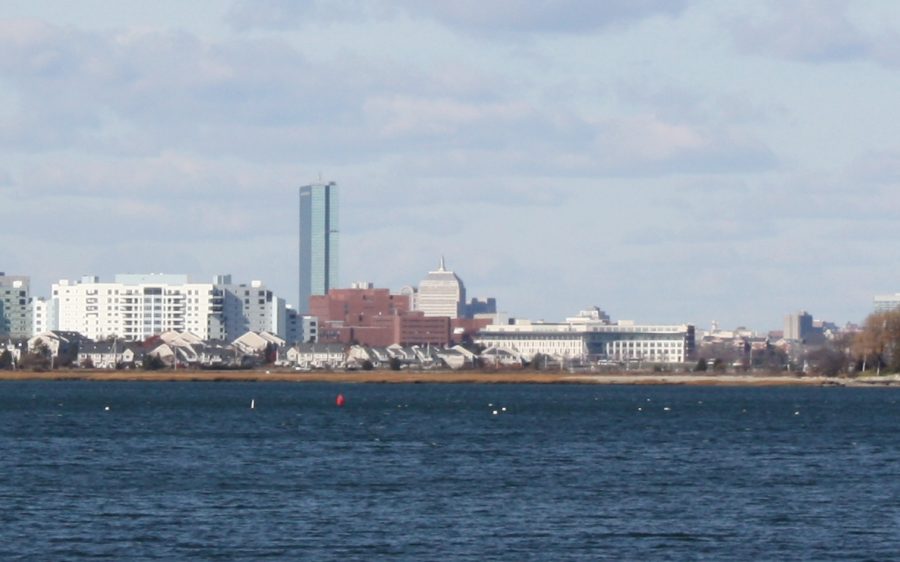The Boston Harbor Association (TBHA) held its first two-day Boston Harbor Sea Level Rise Forum on global warming and sea level change on November 9 at the IMAX Theater in the Boston Aquarium and November 10 at the John Joseph Moakley Courthouse. The forum featured the research findings of UMass Boston professor, Dr. Ellen M. Douglas and her fellow researcher, Dr. Paul H. Kirshen, from the Battelle Institute in Lexington.
According their website, The Boston Harbor Association “is the leading harbor advocacy group working to promote a clean, alive and accessible Boston Harbor.” The TBHA was founded in 1973 by the League of Women Voters and the Boston Shipping Association. The goal of this forum is to give the public a chance to learn about the potential effects of sea level rise due to climate change and to start a dialogue about implementing more sustainable energy practices.
The forum featured a keynote address by Gina McCarthy, the Environmental Protection Agency’s Assistant Administrator, and a presentation including maps generated by Dr. Douglas, Chris Watson from UMass Boston’s Environmental Earth and Ocean Sciences (EEOS) Department and Dr. Kirshen.
As a hydrologist, Dr. Douglas has been doing research on water supplies in Massachusetts for years. Douglas explains, “areas of Boston have already been inundated due to higher sea levels and ice melting due to thermal expansion.” The models used in the presentation, titled, “The Rising Tide in Boston: Sea Level Rise and Coastal Flooding due to Climate Change,” quoted the Intergovernmental Panel on Climate Change (IPCC), which stated that it is unequivocal that the earth’s climate is warming and that it is very likely that human emissions have caused most of the observed increase in global temperature. According to Douglas, the amount of carbon dioxide in the atmosphere recently reached a measurement of approximately 395 parts per million, the highest level ever recorded. This indicates that immediate steps should be taken to lower our carbon footprint.
The data used to graph potential sea levels implemented past water levels to project water levels that may be seen in the future. The potential sea level rise was graphed from a low point of 2.5 inches of sea level rise to a high point of 5 inches. Maps in the presentation showed that a storm surge coupled with higher sea level rises could cause areas that have never experienced flooding to end up under water.
The maps in the presentation showed the Boston Harbor area, the Quincy area and the Everett/East Boston area. In all three cases, the combination of rising water levels, high tide and a storm surge could cause considerable flooding to coastal areas. In one slide, a flood in the Rowes Wharf and Central Wharf areas were shown. During high tide, the area overflowed sufficiently to flood the docks.
The last slide of the presentation offered / described two different and equally important aspects of controlling sea level rise and global warming: (1) the mitigation or reduction of carbon emissions while working towards reliable sources of reusable energy and (2) greater conservation and adaptation or lessoning the effects of sea level rise. The presentation explained, “until mid-century, impacts of on-going climate change are inevitable. We need to do things now to prevent future damage.”
The Boston Harbor Association will be holding two Boston Sea-Level Change community meetings in November. The first will November 22 at the Maverick Landing Community Center in East Boston, from 5:30-7:30 p.m. The second will be November 29 at the Harbor Point Development in Dorchester from 5:30-7:30 p.m. According to the web site, participants will view specifically prepared maps of Boston Harbor and participate in discussions on the implications of sea level rise for the Boston community. Both community meetings are free of charge and will include sandwiches and refreshments; those interested in attending either of the community meetings can e-mail [email protected]. For more information, visit www.tbha.org.





















































